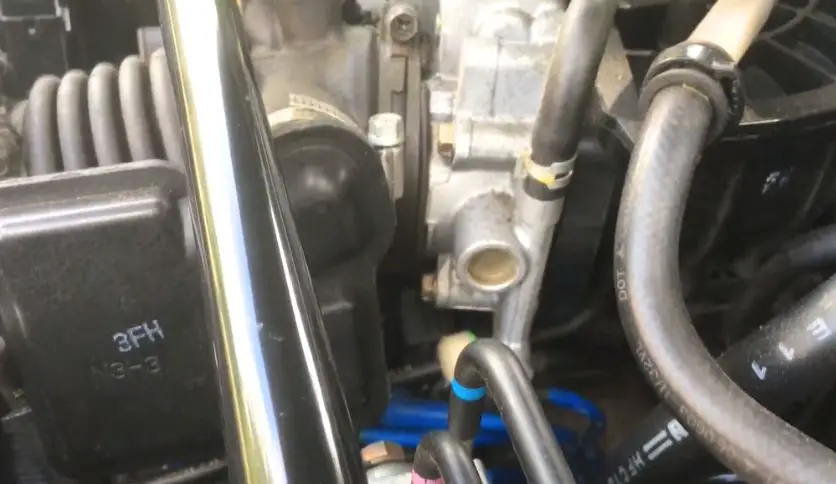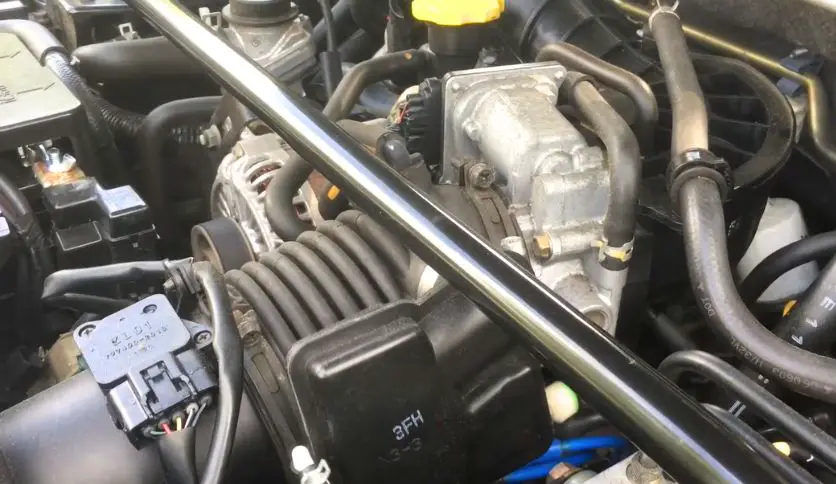Engine ticking and loss of power in a vehicle can indicate various mechanical issues. The symptoms may be engine oil problems, worn parts, or ignition system failures.
Understanding the causes of engine ticking and power loss is crucial for car owners and enthusiasts. These noises and symptoms should never be ignored, as they can signal the need for immediate attention by a qualified mechanic. Ticking sounds may be caused by low oil levels or pressure, faulty valves, or worn engine components, such as rods or lifters.
Alternatively, the sensation of reduced power can result from clogged filters, a malfunctioning fuel system, or issues with the spark plugs or timing belt. Regardless of the mechanical literacy of the individual, it’s important to schedule a diagnostic with a professional to prevent further damage and ensure the vehicle’s longevity. Addressing these issues promptly can save time, money, and the potential headaches of more serious engine troubles.
Contents
Identifying Engine Ticking And Loss Of Power

Engine ticking and a loss of power can indicate several underlying issues, ranging from minor fixes to more serious engine problems. Recognizing these symptoms early can help you address the problem before it leads to more significant engine damage.
The tell-tale signs of engine distress include an irregular ticking noise, reduced acceleration, and a general lack of power while driving. Drivers might also notice that the engine struggles to maintain power during uphill climbs or while carrying heavy loads. Other symptoms may include increased fuel consumption and a noticeable decrease in engine performance.
To diagnose these issues, various tools and techniques are employed. Professional mechanics often use engine diagnostic software to read trouble codes from the vehicle’s onboard computer. Additionally, a thorough inspection of engine components such as the valvetrain, spark plugs, and timing belt or chain can reveal the source of ticking. Manual tests, such as compression and leak-down tests, offer insight into the engine’s internal health and can confirm the presence of wear or damage contributing to the loss of power.
Engine Ticking Quick Fixes
One of the most common causes of engine ticking is inadequate lubrication. Conducting a routine oil and fluid check can often address this issue. Ensure that the oil level is within the recommended range and that the oil is not overdue for a change. This could significantly reduce the ticking noise and improve engine performance.
Inspecting spark plugs for signs of wear or damage is another critical step. Worn or fouled spark plugs can lead to engine misfiring, which might manifest as a ticking sound. Replacing faulty spark plugs can restore engine power and efficiency.
Lastly, a thorough belt and hose assessment is essential. Frayed or cracked belts and hoses can deteriorate engine function, causing ticking noises and power loss. Timely replacement of these components will ensure the smooth operation of your vehicle’s engine.
Loss Of Power Quick Fixes
A clogged or dirty air filter can drastically reduce engine performance. Checking and replacing it, if necessary, could solve the loss of power. A clean filter ensures optimal airflow to the engine, which is crucial for efficient combustion and power generation.
Fuel system issues often lead to engine problems. Inspect the fuel filter, fuel pump, and injectors. A clogged fuel filter or a malfunctioning fuel pump can starve the engine of fuel, causing a drop in power. Regular maintenance of these components is essential for uninterrupted engine performance.
The exhaust system plays a significant role in engine efficiency. A blockage or leak can lead to reduced power output and odd noises. Ensure the exhaust manifold, catalytic converter, and muffler function correctly. Addressing these issues can restore engine power and eliminate ticking noise.
Frequently Asked Questions Of Engine Ticking And Loss Of Power
Why Is My Car Losing Power And Clicking?
Your car may lose power and click due to a failing battery, loose wires, or a faulty starter. A professional inspection is recommended to diagnose and fix the issue.
Why Does My Car make a Ticking Noise, And My Engine won’t Go Full Power?
A ticking noise with reduced engine power can indicate low oil levels, worn-out components, or an issue with the fuel system. Check the oil and consult a mechanic.
Do Ticking Mean Your Engine Going Out?
A ticking noise in your engine doesn’t necessarily mean it’s failing. It could indicate a minor issue like a need for oil or a loose part but also potentially signal a more serious problem. Prompt inspection by a mechanic is advised.
Can Lifter Ticks Cause Power Loss?
Yes, lifter ticks can lead to power loss in engines by hindering valves’ proper opening and closing, affecting performance.
Conclusion
Understanding engine ticking and power loss is crucial for vehicle maintenance. Symptoms often signal underlying issues that should not be ignored. Early diagnosis and repair can save time and money while ensuring your vehicle’s longevity. Regular engine checks and timely fixes will keep your car running smoothly, safeguarding your on-road experience.

Hello, this is Wesley Shelton, currently working in a car restoration company for over 5 years. Before that, I was a worker at a small car repair shop. As I was a car freak from a young age and worked as a professional for over half a decade, I think I now know pretty much everything about every car and its parts. To establish my name as a professional and help others by sharing my knowledge, I’ve created this website, which I work on whenever I get free time. I hope you’ve enjoyed my informative blog!


